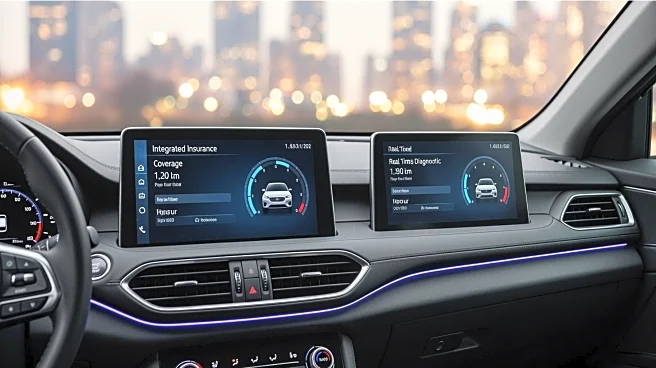What's Happening?
Volvo Car Financial Services U.S., a subsidiary of the Swedish automaker, has partnered with State Farm to offer integrated auto insurance options to Volvo customers in the United States. This collaboration
allows customers to initiate insurance quotes and connect with State Farm agents during the car purchasing process. The initiative aims to simplify the insurance acquisition process by aligning with Volvo's values of safety and simplicity. Additionally, Volvo has launched an independent insurance agency offering car, home, and umbrella insurance, representing major carriers like Nationwide and Liberty Mutual. This agency is operational in several states, with plans to expand further.
Why It's Important?
The partnership between Volvo and State Farm signifies a growing trend of collaboration between original equipment manufacturers (OEMs) and insurance providers. This trend is reshaping the auto insurance landscape by integrating insurance offerings directly into the car buying process, enhancing customer convenience and potentially increasing brand loyalty. As OEMs face declining customer loyalty and insurers grapple with rising premiums, such collaborations could provide a competitive edge by offering streamlined services. The move reflects broader industry efforts to innovate and adapt to changing consumer needs, potentially boosting profitability and customer retention.
What's Next?
Volvo's insurance agency plans to expand its operations to 15 more states, increasing accessibility for customers. The collaboration with State Farm may inspire similar partnerships between other OEMs and insurers, further integrating insurance into the automotive sales process. As the industry evolves, stakeholders will likely focus on enhancing customer experience and loyalty through personalized insurance offerings. This could lead to more OEMs adopting similar strategies, fostering a more interconnected ecosystem between car manufacturers and insurance providers.
Beyond the Headlines
The integration of insurance into the car buying process raises questions about data privacy and the ethical use of customer information. As OEMs and insurers collaborate, they must navigate the complexities of data sharing and ensure compliance with privacy regulations. Additionally, the shift towards embedded insurance solutions may influence traditional insurance models, prompting insurers to innovate and adapt to remain competitive in a changing market.











